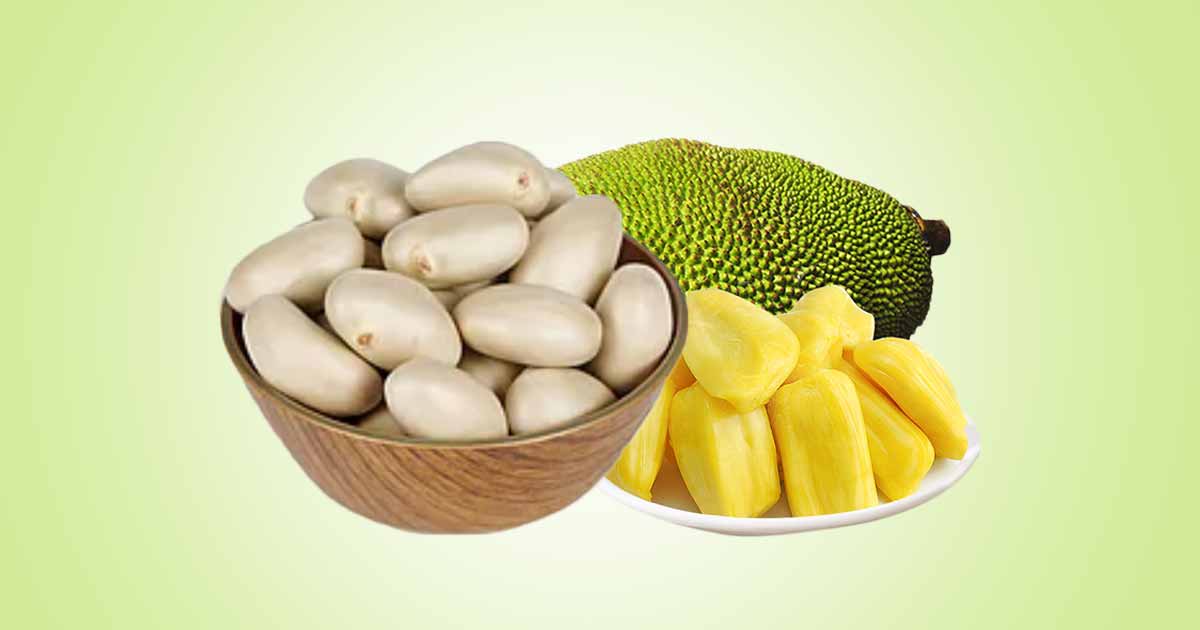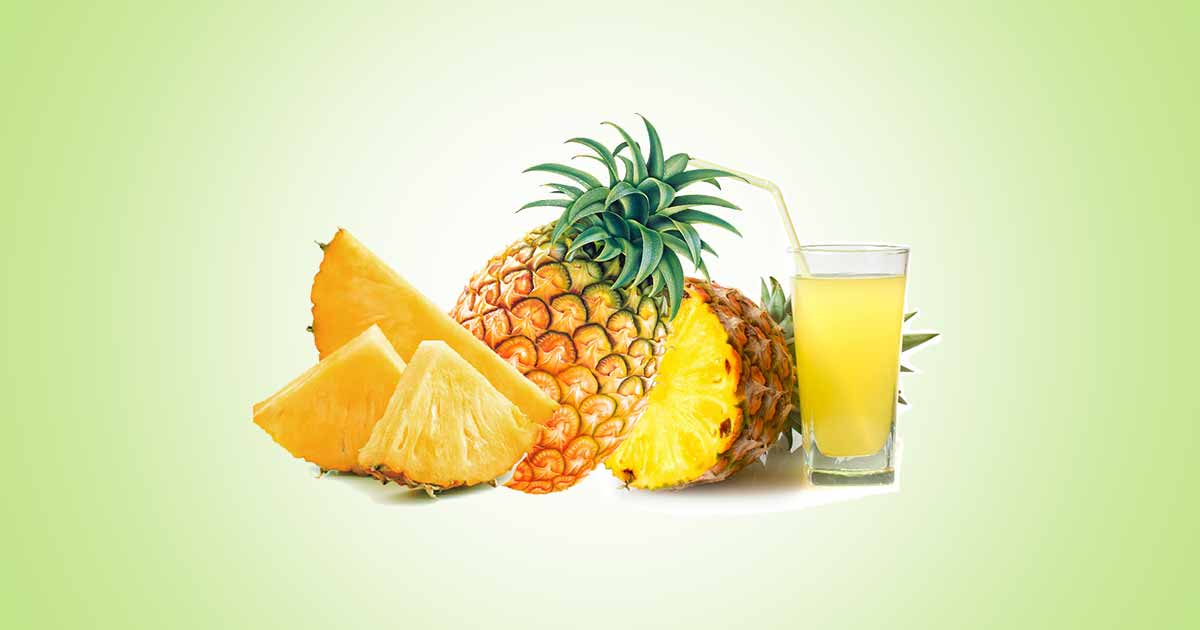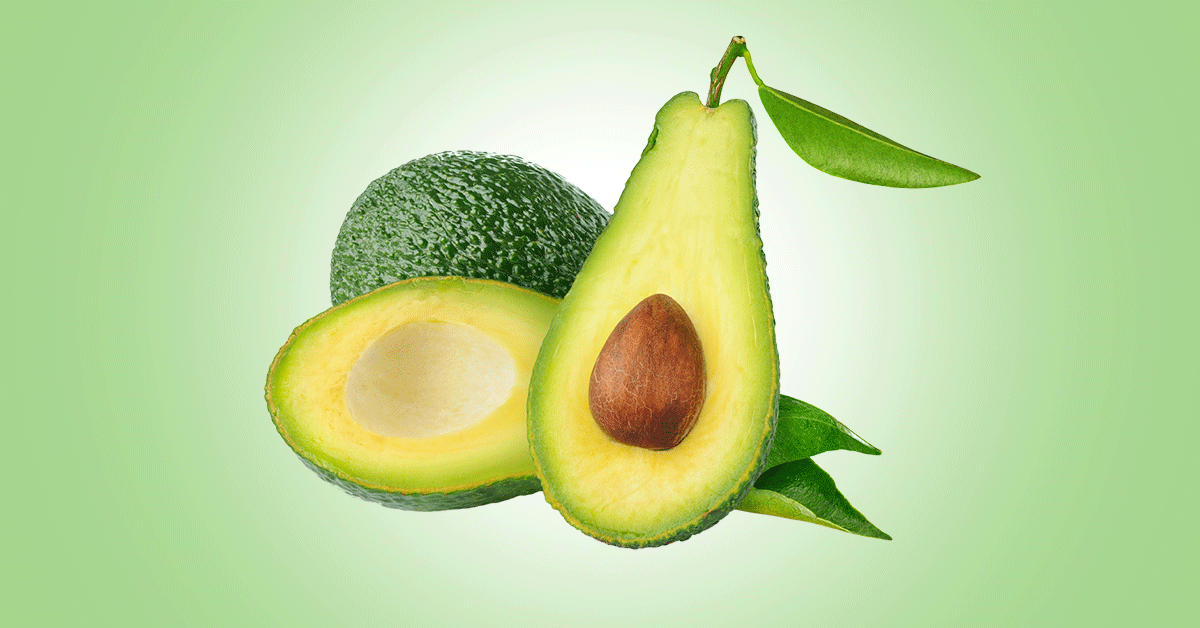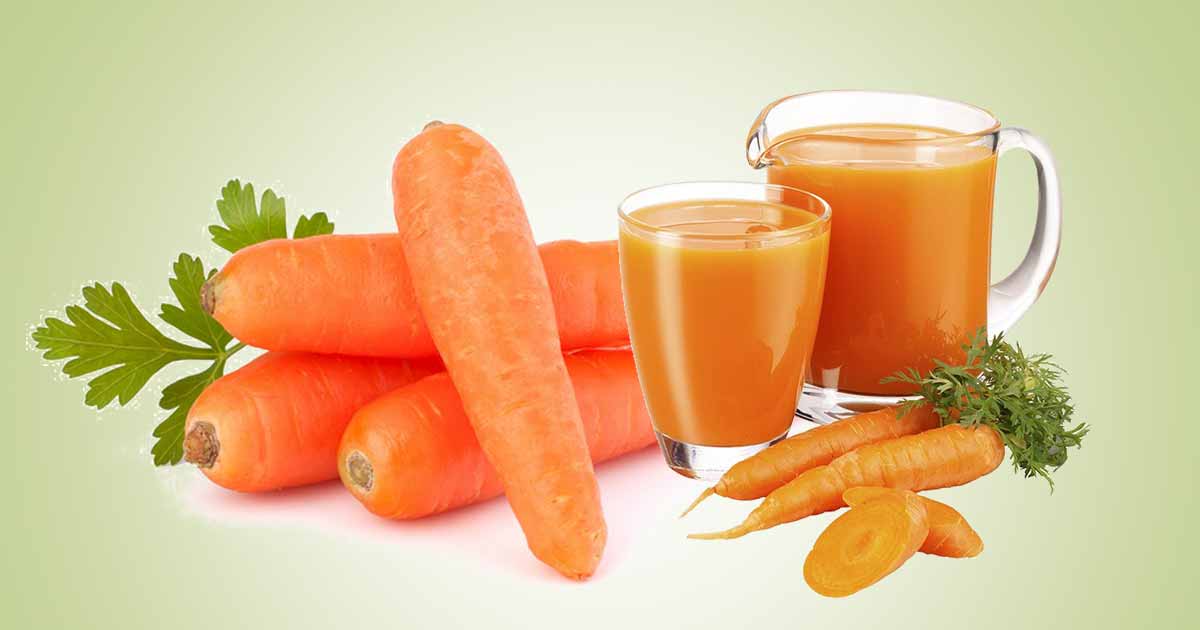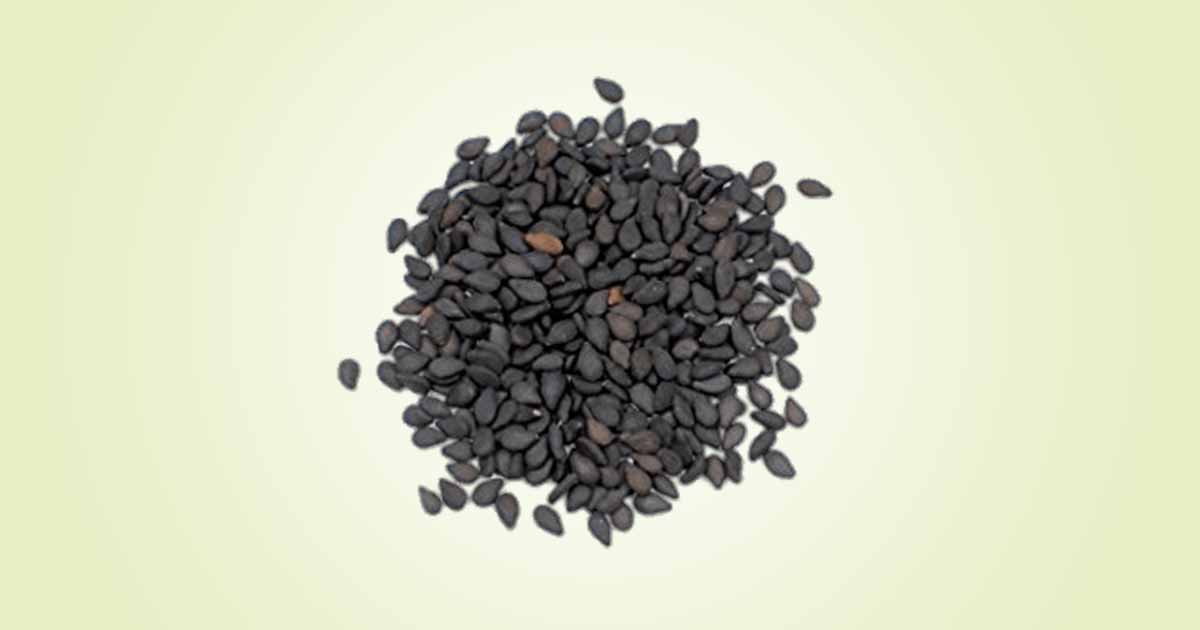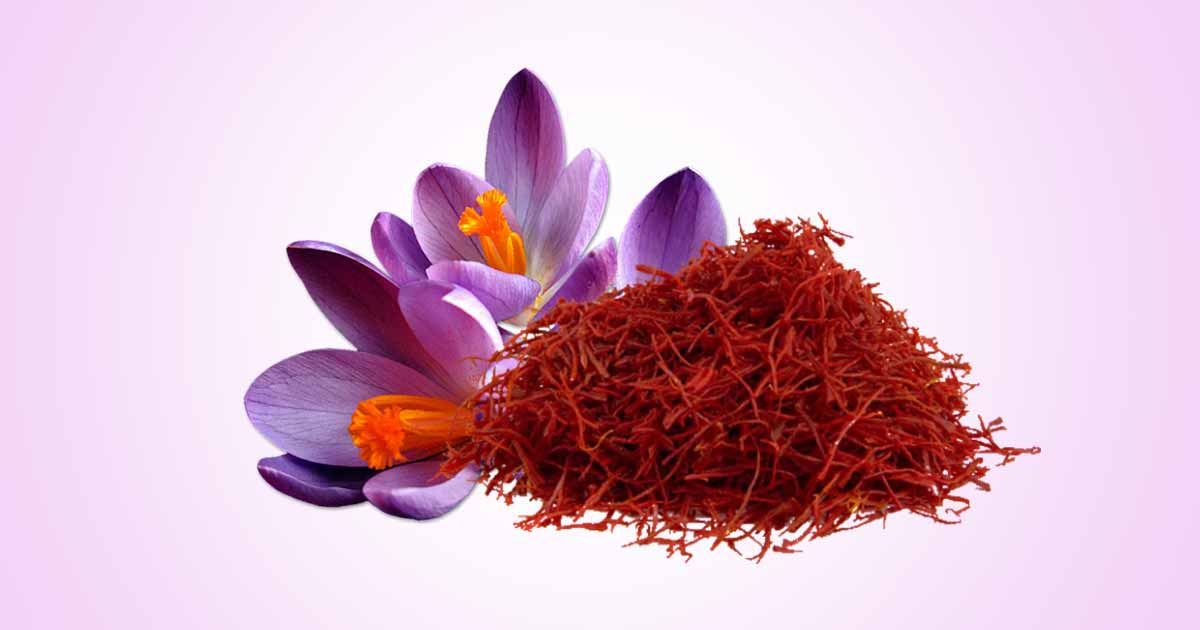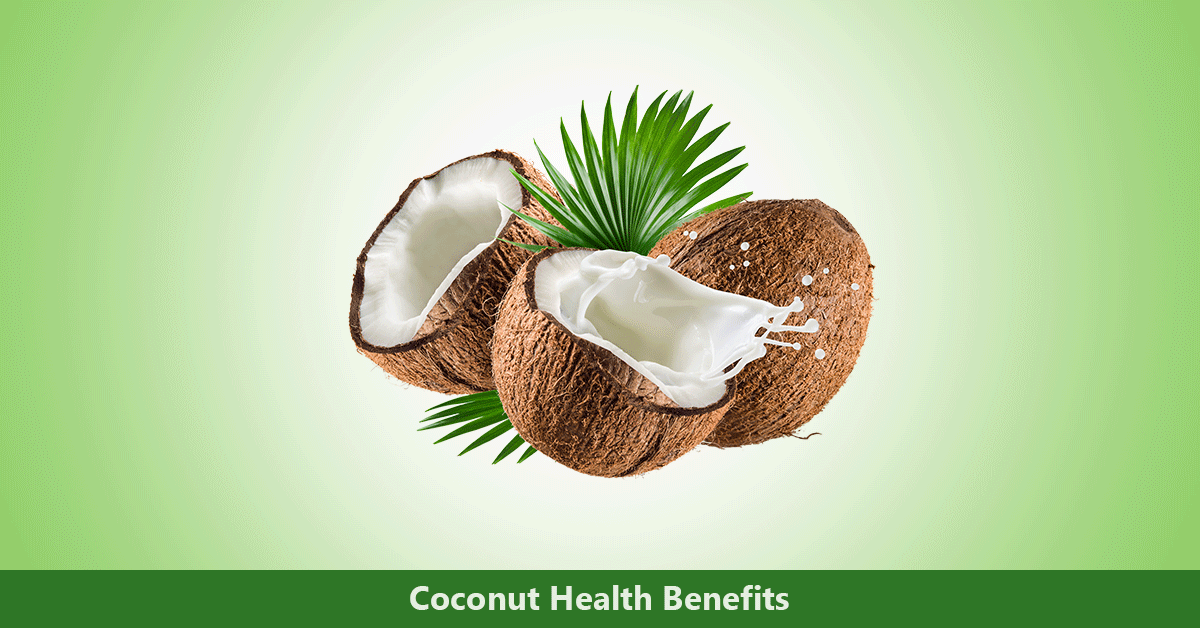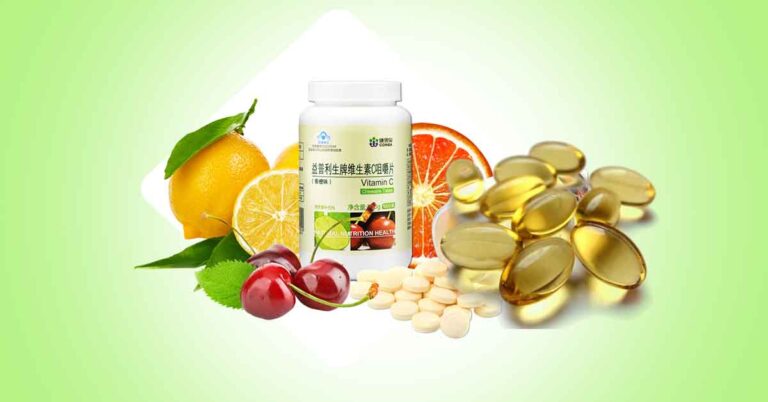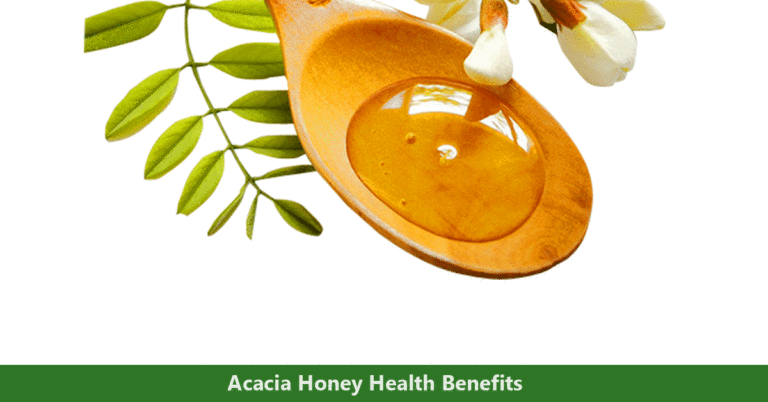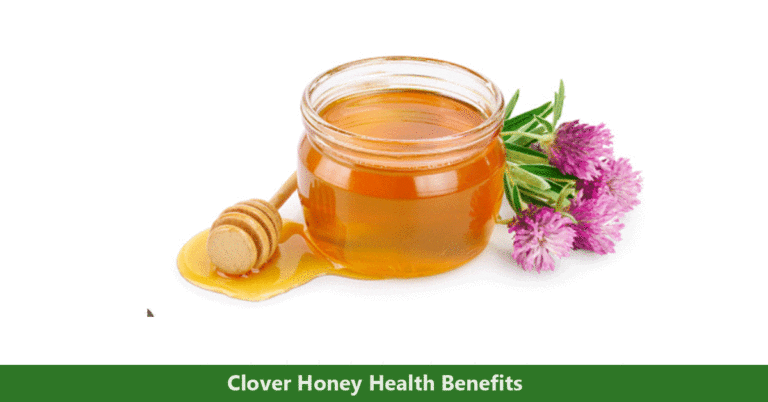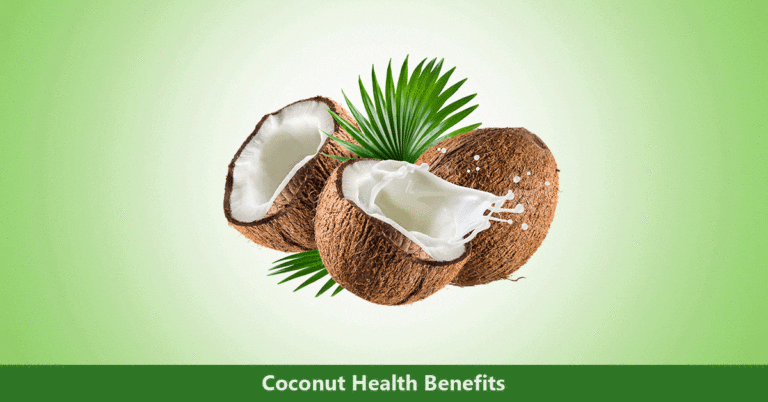Jackfruit is the largest edible fruit in the world. The jackfruit seeds, which are about 15 to 18% of the fruit weight, are contained inside the fruit. Jackfruit is a tropical plant from the Moraceae family, alongside breadfruit, mulberry, fig, and breadnut. It originates from India and Malaysia. It is now grown in Asia, South America, and Africa.
The inside of the jackfruit contains the edible, sweet, aromatic, crispy, soft pulp that surrounds each seed. Fully ripe jackfruit has a strong aroma. An inedible “rag” exists between the seeds and edible pulp. The seeds are 2 to 3 cm long, light-brown, waxy, oval-oblong, and varies from 30 to 500 seeds per fruit. The seed are enclosed within a thin whitish membrane.
Jackfruit seeds are underutilized and discarded due to the perishable nature. However, when properly handled and stored, it can last for a month. It is preserved by roasting or making powder out of the seeds. The seeds from ripe fruits can be boiled, baked, or roasted for consumption. It has a milky, sweet taste.
Some uses include making of snacks, boiled or ground and blended with wheat flour to making baking flour.
Jackseed Flour and Starch Application in Food and Pharmaceutical Industry:
Jackfruit seed contains abundant starch with good recovery yield. By converting the seed into flour, it could be utilized in the food and pharmaceutical industry as a stabilizer, thickener, and a binding agent.
The important properties of the starch include good water and oil absorption capacities, higher gelatinization temperature, acid-resistance in solution and paste form, and high degree of freeze stability. The starch granules also have higher stability against thermal and mechanical shear.
A higher amylose content means it could be used as a substitute for modified starch.
Physical and chemical modification of the starch could also improve the water solubility, solution viscosity, swelling ability, water uptake and resistance to enzymatic degradation.
Composition of Jackseed Seeds
Nutritional Content:
Jackfruit seed contains 55% moisture, protein, fats (monounsaturated and polyunsaturated), and high carbohydrates, fiber, and starch. Vitamin A, vitamin C, Vit-B, riboflavin, thiamine, sulphur, potassium, calcium, magnesium, iron, zinc, copper, and phosphorus.
The starch in the seed tolerate thermal and mechanical shear.
Jackfruit seed contains lignans, flavonoids, tannins, cardiac glycosides, saponins, steroids, isoflavones, reducing sugars, anthraquinones, coumarin, and pectin compounds.
Health Benefits of Jackfruit Seeds
It has anti-inflammatory, antioxidant, antiulcer, and anti-diabetic activities.
Anti-inflammatory activity:
Jackfruit seed contains flavonoid, triterpenes and sterols, which prevent inflammation. The active compound, jacalin from the seed extract has anti-inflammatory and anti-angiogenic activity.
Antioxidant effect:
Jackfruit seed slimy sheath is a rich source of pectin, a compound which has phenolic content. According to Soong and Barlow, fresh seed and flesh has significant ascorbic acid equivalent antioxidant effects and 27.7 and 0.9 gallic acid equivalent phenolic contents.
High dietary fiber content:
Dietary fiber helps to keep the digestive system healthy, improve bowel movement, eliminates constipation, prevent heart diseases, diabetes, and weight gain.
Weight control:
The seed contains low calories, high dietary fiber, low water and fat-absorption capacities which helps to prevent weight gain.
Bone health:
With good quantity of magnesium, calcium and vitamin C, the seed can help to strengthen the bone and prevent osteoporosis.
Cardiovascular health:
The seed contains antioxidants and minerals like potassium, and magnesium that helps to lower blood pressure.
Anticancer effect:
Studies suggest that jackfruit flour has pectin can improve survival of bone marrow cells and stem cells, thereby prevents the risk of leukopenia in patients receiving cancer treatment. Another study also suggests that the seed flour prevents colon cancer cells.
Antimicrobial activity:
Jackfruit seed contains sulphur compounds, which is responsible for the antimicrobial property of the seed. Also, studies by Asio Eve et al., reported that A. heterophyllus seed extracts inhibits methicillin-resistant S. aureus, methicillin-susceptible S. aureus, and multidrug-resistant P. aeruginosa, but has no activity against resistant E. coli and Salmonella typhimurium.
Jackin, a compound in jackfruit inhibit the growth of Saccharomyces cerevisiae and Fusarium moniliforme fungus.
Use as prebiotic:
With high quantity of non-reducing sugar, it is used as a prebiotic. The seed is also a source of carbon for the extracellular production of pullulan by Aureobasidium pullulans and polyhydroxybutyrate using Bacillus sphaericus.
Nair et al. have utilized jackfruit seed powder as a substrate for the production of L-lactic acid using Streptococcus equinus.
Relieves alcohol toxicity:
In India and China, the seed is used to manage alcohol toxicity, and as antidote in heavy drinkers.
Side Effects
About 50% of the protein in the seed contains a lecitin called jacalin, and artocarpin, which has an adverse effect on the digestive system. Also, it contains tannins, an antinutrient that binds zinc and iron, forming an insoluble mass, and reducing the ability of the body to absorb these minerals
Therefore, the jackfruit seed should not be consumed raw, but cooked or processed.
References
- https://www.researchgate.net/publication/333735641_Jackfruit_seed_an_accompaniment_to_functional_foods
- https://www.ncbi.nlm.nih.gov/pmc/articles/PMC6339770/#B12
- https://www.thepharmajournal.com/archives/2022/vol11issue10/PartF/11-9-404-851.pdf
- https://www.admaconcology.com/2021/09/30/jackfruit-a-potential-anti-cancer-fruit-for-cancer-prevention/
- https://doi.org/10.3390%2Fmolecules26164854
- https://doi.org/10.1155/2020/9813970

